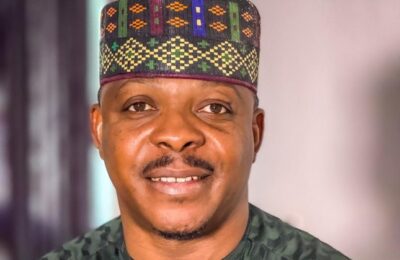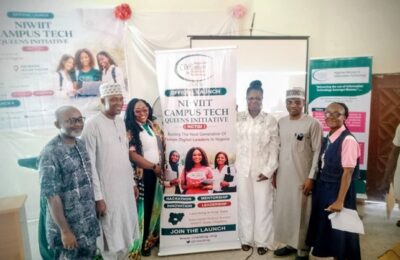When the Federal Government saddled him with the responsibility to chair the Housing Group of Vision 2020, ENGR. STEPHEN SHAIBU MAYAKI brought to bare all his expertise on housing delivery during which he along with co-members found common problems against housing provision and also made recommendations, which if had been implemented, the increasing housing deficit in Nigeria would have greatly been reduced. But alas, the reverse is the case as the margin keeps increasing at a faster rate by the day. Mayaki, a mechanical engineer have traversed reputable conglomerates and companies as Associate of Knight Frank and Rutley, and former Divisional Managing Director (Property Division) of UAC Nigeria plc and Managing Director of UACN Property Development Company plc from 1999 to November 1, 2007. He now serves as Kogi State Commissioner for Lands, Housing and Urban Development.
The former Managing Director of Chemical and Allied Products plc., Director of Thomas Wyatt Nigeria Plc, Arbico plc, Greenwich Trust Limited, Valmon Securities Limited amongst others; an associate member of the Royal Institution of Chartered Surveyor; member of both Nigerian Society of Engineers and Nigerian Institution of Estate Surveyors and Valuers, spoke to The Guardian’s EMMANUEL BADEJO in Lagos on the nation’s housing debacle and said realising housing for every Nigerians by 2020 is unrealistic. Excerpts:
SIX years after you chaired Vision 2020 National Technical Working Group on Housing, there are still issues with the sector in Nigeria. So, how about the work you did?
The work is there for everybody to see but we can confidently say that the Ministry of Lands, Housing and Urban Development is working in accordance with the recommendations of that document. If you check out the recently published National Housing Policy, most of the recommendations we made have been embodied into that policy and implementation has actually started along with the recommendations. This new company called the Mortgage Refinancing Company was one of the recommendations, although we wanted two, which we call the GSAs, Government Sponsored Agencies. Part of the recommendations was that the government should merge both Federal Housing Authority (FHA) and Federal Mortgage Bank of Nigeria (FMBN) into one agency that can have access to funds from the capital market, which would be invested into housing development. But so far, the indications we see now are not bad as I can say there is hope for housing industry and the nation in that regard.
Can you recollect any of the recommendations your group considered imperative to the goal of providing decent, safe and affordable housing to the generality of Nigerians?
Principally, our recommendations covered five areas including land reform, mortgage reform, manpower development in the sector, as you know that there is a very serious short of manpower skill in the industry, the legal reform to put into place especially mortgage; amendment to the Land Use Decree to make the transferability of land titles easier and research of the locally available and sustainable building materials, which can be used to build houses.
But to what extent has the government adopted and implemented those recommendations?
I think the only one they are working one now is the mortgage reform.
With your experience in UPDC as the helmsman, do you agree that solving housing problem, demands a holistic approach?
Yes, I agree but I must say that it is a good step that at least something has started towards solving the housing crisis. The present mortgage sector reform is good because once money is available every other thing could easily be fixed.
So from your assessment, can we say that Vision 2020 on housing is a reality?
No! (laughs). We can say that we are working towards it. The broad vision was that we should build 10 million houses by year 2020. And that implies that we should build 1 million houses every year. But now, when you put all the developments together, I do not think we are doing up to 20,000 houses in a year. And that is problem. So, we are not there at all. However, the structure needed to achieve such a gigantic ambition is not there yet, and I think that is what the government is trying to do first by reforming the mortgage system.
Apart from mortgage, what other areas would you want to see changes as far as housing is concerned?
It is a complex thing, I must agree. Though I mentioned that robust mortgage system must be in place, yet, it is not the only thing that we need to do. The fundamental problem with housing in Nigeria is mismatch between affordability and supply. Most of the houses in Nigeria are not affordable. This is a fundamental problem and unless we solve that problem first, we are not moving anywhere. If you carry a product to the market and nobody is buying it, you are not going to produce more. So, we have to resolve that problem of affordability by building houses that are within the resources of the people, without which we cannot break even into housing for all. I am happy that the new housing policy recognizes this fact of affordability.
Some experts say the use of indigenous building materials is the answer to reduce the housing crisis in the nation, while others hold a contrary view, canvassing panel houses. What’s your take on this and why?
Building mud houses in this age! (laughs). You cannot go back that far. House price is a function of the size and the land value. The solutions I will advocate is that government should take the responsibility of providing infrastructure in all estates, so that that cost is out of the price of the house. Government must provide the roads, water, electricity and once these are provided, the price of the houses is crashed by 25 percent.
Besides, the developer must minimize land and cost. What we have just done in Kogi is a testimony. The two bedroom houses that we have built are about 80 square metres, while we are trying to build one bedroom on 60 square metres. But the typical house in Lagos of a three bedroom is about 120 to 140 square metres. And once you reduce the size of the house, the price comes down. This is germane to building houses that can fit into the pocket of the buyers. It is not that we have not done it before. The first executive governor of Lagos State, Pa Lateef Jakande did it. We also did it during the time of LEBD, the first developer in Lagos; this was done successfully in Surulere. By then civil servants were able to buy houses. What has happened is that we all have upgraded our tastes. Nobody seems to want portable but descent dwelling place as we all crave for big mansions in Lekki. And because of this, we have pushed houses out of the reach of everybody. As at today, you’ll find some executives spending as much as 40 per cent of their income on rents, which is not affordable. So that affordability has to be resolved and once this done, we would have succeeded in creating an effective demand.
While you were at UPDC, the company repeatedly drew loans from International Finance Corporation (IFC) for its FESTAC Novotel Hotel Complex, but why is it difficult for our developers to draw financial aids from abroad?
International fund is very difficult to access, probably because it involves a lot of documentation and if you are not a good book keeper, you can never meet their terms. The luck we had in UACN was that, it is a straightforward company multi-national company that keeps its books very well and by that we were able to meet the documentation demands for such facilities. Again, the business case of the project must be very sound and the market must be there. The FESTAC one was not very attractive to the local market, but I had a vision then that Lagos sits on three axis – V/I, Ikoyi; Ikeja; and FESTAC and I kept telling them that this is developmental project, if done would push up real estate business within that corridor. Gratefully, it is rising now. As we speak, on going along that axis is 10-lane expressway under construction. Basically, the reason we find it difficult to access foreign loans, is that we don’t have good track record in business and we don’t have good records of our business transactions. This makes it difficult to meet the demands of most international lenders.
The 272 unit housing estate in Gadumo Village, Lokoja, Kogi State for flood victims has four months completion date, how realistic is it?
This sounds incredible, isn’t it? But let me tell you that it is true, as we’ve started taking possession of the ones already completed. We started around May 15th and it would be four months by September 15th, and I’m sure that we will slightly meet the target because the project has been well-monitored and the contractor handling the project has been doing well and the Governor, Idris Wada, has been very kind to provide all the money needed as at when due. He has disbursed money for the last phase of the project. A few contractors have actually completed theirs. The houses are very simple in style but elegantly put together. All the external finishes completed though we limited the internal finishes. This is so because every would be owner has the liberty to design the interior to his/her taste. I am confident that most of the contractors would finish before the deadline.
The Confluence State is not known for extensive urbanisation projects, which would have impacted on any housing reform. What is happening under your watch as the Commissioner for Land and Housing in Kogi, as far as land reform and housing are concerned in the state?
You are right. Really, there has not been much happening there. It is also a small town of less than 300,000 in population and yet properly planned and this gives us a lot of opportunities to do many things right, which many towns in Nigeria will not able to do. In Kogi State we have decided to resuscitate and complete the abandoned master plan for urban planning of Lokoja. This project was first started in 2005, but was abandoned. Lokoja is a very historic town and we are working on urban redesign by trying to shift the old centre of town, where it used be to another location. Again, this project was initially attempted but unfortunately, it was not realised. The plan is to shift the centre of the town to Hassan Katsina road for which we are designing a new commercial city centre and we are encouraging all with commercial interest to key into this project. We are also doing masterplans for regional layout for site and services scheme.
On our housing policy, we plan to build about 5,000 houses within the tenure of Captain Wada. The 272 units estate is a starting point. We would achieve most of it through Public Private Partnership (PPP). We have already signed an agreement with a developer, CentrePoint to build 405 houses for the civil servants. Already, the phase one of the project is completed. This project has actually started, so what we are doing is to buy over the project so to speak. They have done about 105 houses, and the second phase is about 170 and this project should be ready by June next year at a moderate cost within N3million, N4.5million and N6million for one, two and three bedroom respectively. And the cost of the entire project is about N1.7billion. The Federal Mortgage Bank is funding the project. The state only bought the houses for the civil servants, who are expected to pay 10 percent and FMBN provides 90 per cent mortgage facility. We have equally signed Memorandum of Understanding (MOU) with four developers, who want to build other houses.
What we are doing at Kogi is a model that can solve Nigerian’s housing problem. Like I said earlier, affordability and availability of long-term funds. This we have been able to do in Kogi by coming about with a design that will meet the pocket of most Nigerians and at a reasonable cost too. And if necessary, you can leave out some finishes so that the whole thing will become affordable. We offer the houses for sale through mortgages, which the state used to do on owner-occupier basis, and then deducting 25 per cent of your salary for repayment until you finish paying. And if it happens that you do not finish payment while you are retiring, the balance would be deducted from your retirement benefits. And in that case, it does not inconvenient the man at all because United Nations recommendation is that you should not spend more than 25 per cent of your income on housing and we are meeting that goal.
So, what the nation can do to easily solve the housing crisis is to tie the mortgage payment to the terminal benefit from the pension funds, which is already over N3trillion and the FMBN does not have more than N171billion. Can you see the difference? The money is there but we are not accessing it. So, we have to find a way of unlocking the idle funds. This system operates in Singapore and as at year 2, 000 the country celebrated its two million houses and Nigeria, which also launched the same programme almost the same time with Singapore have not built up to 300,000 houses because of the issue of funds.
What are the opportunities for Nigerian realtors and developers in Kogi State?
Developers who are interested in building affordable homes have a lot of chances in Kogi State, though there may not be gigantic profit.
With the present reality, don’t you think Estate Surveyors and Valuers Registration Board of Nigeria (ESVARBON) Act is long overdue for a review?
If you listen to my address, ESVARBON does not regulate estate agency; it is concerned with valuation and does not regulate any other thing at all. NIESVs existed before ESVARBON and the practice have some standing with Royal Institution of Surveyors (RICS) and they just assumed that what is obtainable in under RICS is obtainable under ESVARBON. But I do not believe it is true, and that is why I am saying that they may have to expand the scope of their operation, else the issue of encroachment by others, cannot be solved. The encroachment continues because of the vacuum that exists in their law and as we speak there is no legal protection. When you take valuation, you’ll see that nobody has been able to encroach on that because it is specifically mentioned in that decree.




